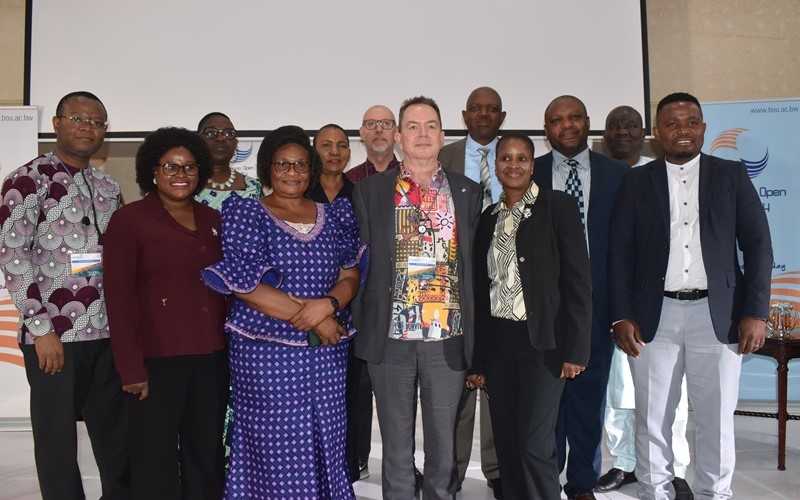
Data demonstrates that there are large and growing numbers of young people who are not employed, educated or trained in many sub-Saharan African countries. This is mainly because there are only a few secondary school places to accommodate those completing primary school. There is also, generally, significant attrition within education systems.
The Commonwealth of Learning (COL) has been advocating for the provision of open schooling for these learners over many years. In the past three years, it has provided support for open schooling (OS) initiatives in Botswana, Cameroon, Eswatini, The Gambia, Ghana, Kenya, Lesotho, Malawi, Mozambique, Namibia, Nigeria, Tanzania, Togo and Zambia. Not all these initiatives have yet reached scale, but COL recently co-hosted a regional workshop with Botswana Open University (BOU) to enable participants to learn from one another’s experiences and determine the next steps.
The regional workshop was attended by 11 of the 14 participating COL partners (Botswana, Eswatini, The Gambia, Lesotho, Malawi, Mozambique, Namibia, South Africa, Tanzania, Togo and Zambia).
COL’s newest OS partners were asked for their reflections on the lessons shared. Partners from The Gambia, Lesotho, South Africa and Togo noted important issues regarding capacity-building, budgeting, timeframes and autonomy, which they believe will significantly enhance their own open schooling initiatives.
COL’s partners were also asked to map out their priorities over the next three years and to indicate where COL support would be required.
Professor Peter Scott, COL President and CEO, in his remarks, explained how open education can create unique opportunities for learners in the SADC region:
“COL knows that we must reach not just the learner at the back of the classroom but those very many in our world who have not had a chance to get to class. Open schooling is a scalable solution for Southern Africa that offers to affordably extend school reach to do just that and more – it can even bring those who have dropped from class back into meaningful and relevant learning”.
BOU’s Acting Deputy Vice Chancellor, Academic Services, Professor Gbolagade Adekanmbi, who had participated throughout the workshop, observed that the discussion had been very fruitful and that learning about open schooling in such diverse contexts had been beneficial.
Dr Tony Mays, COL’s Director: Education, who co-planned and co-facilitated the workshop, observed that the need for open schooling has never been greater, with the growing numbers of young people who are not in school, employment or training.
“While it is laudable for open schooling provision to be made freely available, it is important that government subsidies are sufficient to provide a quality service which offers a reasonable chance of turning access into success. We need a better understanding of the economics of open schooling provision in the current context of increasing blended and online provision.”


